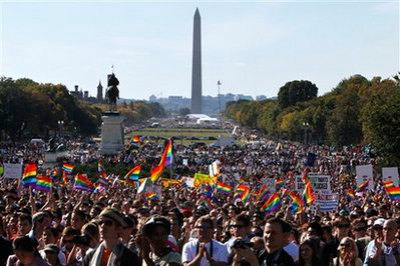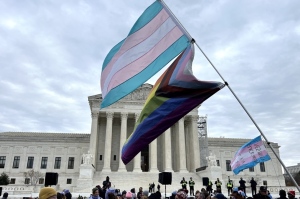How the Equality Act would broaden inequality

Equality has always been important. In 1776, the Declaration affirmed all men are created equal with unalienable rights. In 1868, the 14th amendment provided for equal protection under the law, and in 1964, equality of employment opportunity was established by the Civil Rights Act. Equality has meant a great deal to Americans both then and now. But should all inequality be likened to injustice?
A society equal in every way is one in which homogeneity and blandness overtake distinctiveness and diversity. Unfortunately, the Equality Act recently passed the US House and threatens to move America toward that very end: state-coerced uniformity.
Do I hate equality? No. I’ve been fighting for equality in my own way for the last 20 years, running a Gospel Rescue mission that helps the poor find self-worth and then climb the income ladder. I’m not alone. Nearly 300 missions like mine together provide 50 million meals, 25 million nights of shelter and housing, distribute 30 million pieces of clothing and graduate more than 20,000 homeless men and women from addiction recovery programs into productive living every year in America.
We are Citygate Network, an association of gospel ministries led by men and women who are the compassionate, committed, non-compromising Daniels of our day but if the Equality Act becomes law it will push them toward compromise. How? The bill adds LGBTQ to the 1964 Civil Rights Act and would require Christian ministry leaders to overlook sexual orientation and gender identity when hiring.
As a leader of a religious organization who works hard to inculcate our core Christian values, the freedom to hire people and onboard volunteers who align directly with those values is vital for preserving our distinct organizational culture. It is the free exercise of my religion and our Founding Fathers thought it important enough to protect. This constitutional right afforded by the first amendment assures that no law of the state infringes on the exercise or practice of our faith.
I’m not arguing for my way. I’m arguing for a fair way.
One church that supports gay marriage fired an employee who believed a more traditional interpretation of the Bible. Should they be sued? No. They were exercising their freedom of religion to protect their religious identity. Should the state strip that constitutional right? Not for them or for me or for the thousands of leaders who freely exercise their religion today, much of which is spent fulfilling the scriptural mandate of loving and caring for the poor, sick, hungry and elderly (regardless of their sexual orientation).
The leaders of that noble, pure and undefiled religion (James 1:27) have taken advantage of the ability to expand these vital ministries by hiring like-minded Christians who interpret scripture as they do. When they hold fast to that religious conviction, as did one mission in Seattle, they might get sued. Who gets hurt here? One might think the bisexual man who didn’t get the job. But in the media storm and lambasting that followed, it was ministry to the poor that took the hit.
Some might ask, “Wouldn’t it have been easier to just hire the guy?” In the short run, maybe. But for stalwart leaders under conviction, obedience to their Christian faith is no less than Daniel’s obedience to bend his knee daily to God and his refusal to bow before King Nebuchadnezzar.
If the Equality Act ever passed into law without an amendment to uphold the free exercise of religion, thousands of Daniels now leading the nation in the compassionate care of the marginalized and vulnerable will also refuse bowing to the mandates of the state and instead welcome the lions’ den. And while there in exile, the weak and poor will find the lower rungs of a ladder gone, opportunity stripped, hope deferred and the dream of stepping up on more equal ground, lost.




























